LATEST INSIGHTS
Your Present Location: LATEST INSIGHTS-
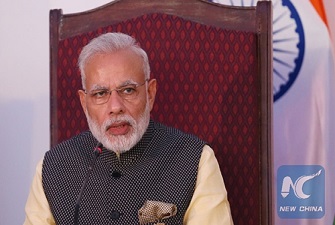
Ding Gang: Many questions for India after temple verdict
The Indian Supreme Court's decision on Saturday made history by clearing the decks for the construction of a Hindu temple by giving the ownership of a disputed plot of land at Ayodhya in the northern state of Uttar Pradesh to Hindus.
2019-11-14 -
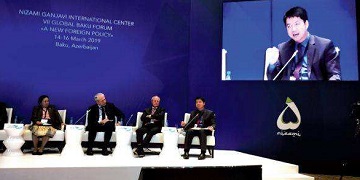
Wang Wen: ‘Gn’ shows how power structures shape new intl governance mechanism
It is hard to imagine that Azerbaijan, a country that ranks above 90 in terms of area and population, has such a global appeal, if you haven't taken part in Global Baku Forum. I almost thought President Ilham Aliyev was the leader of a superpower, when he stood in the center of more than 40 former presidents and prime ministers from more than 30 countries and posed with them for pictures at the opening ceremony.
2019-11-12 -
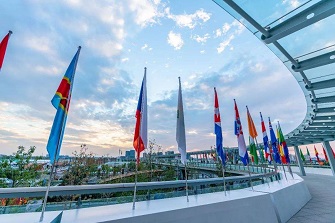
William Jones: Media and think tanks join hands to combat 'fake news' about China
Around 270 representatives of think tanks and media organizations from 99 countries gathered in Shanghai on November 6 and 7 for the second Hongqiao International Economic Forum on China's 70-year Development and the Building of a Community with a Shared Future for Mankind, to discuss the significance for the world of China's road to prosperity over the last 70 years and celebrate the success of the Belt and Road Initiative (BRI).
2019-11-11 -
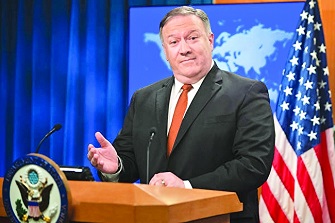
Pompeo slammed for slandering CPC
On the day celebrating the 30th anniversary of the fall of the Berlin Wall, US Secretary of State Mike Pompeo viciously attacked China in his speech in Berlin, trying to build a new Cold War wall, which observers find ironical. Experts slammed him for neglecting his duty as the US' chief diplomat, saying he doesn't deserve his status. Pompeo said in his speech in Berlin on Friday that China's tactics would be "horrifyingly familiar" to the former East Germans, claiming "free nations" are in a "competition of values" with "less free nations."
2019-11-11 -
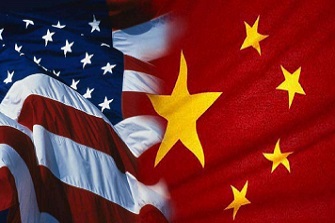
Zhao Minghao: Great importance attached to phase one China-U.S. trade deal
Simultaneous tariffs cancellation on each other's goods is an important condition for China and the U.S. to reach a "phase one" trade deal, said Gao Feng, spokesperson for China's Ministry of Commerce at a press conference held on November 7. The phase one trade deal is an important step towards the unwinding of a trade war that has inflicted significant damages to the interests of both sides. As Republican Senator David Perdue of Georgia said, the amount of trade in the phase one deal is modest, but it can prevent the two countries from slipping into a "Cold War."
2019-11-08 -

Linking fentanyl fight with trade war ‘disrespects lives’
Handing heavy sentences to fentanyl peddlers and manufacturers signals a benign cooperation between China and the US on a crackdown on such crimes. But linking it to the trade deal disrespects lives, an official said. The leader of a Chinese fentanyl trafficking gang, surnamed Liu, was sentenced to death with a two-year reprieve by the Xingtai Intermediate People's Court in North China's Hebei Province on Thursday. The gang is believed to have targeted international clients, including US ones.
2019-11-08 -
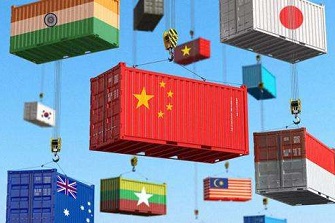
Ding Gang: Rejecting RCEP won’t make India a winner
After India decided not to join the Regional Comprehensive Economic Partnership (RCEP), some officials and scholars inside the country claimed it is "a win for all those protecting national interests." But it is China that is likely to be the real winner as with India's withdrawal, China has lost a potential challenger. Indian media reports said that New Delhi's decision not to join the free trade pact will prevent Chinese products from flooding the Indian market, which may have dealt a body blow to Indian medium and small enterprises.
2019-11-07 -
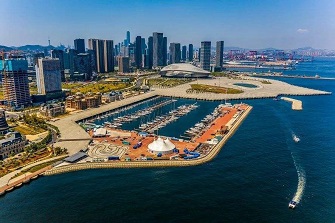
Discovering amicable cities along Silk Road
Cities should serve their citizens and it takes efforts from the whole society to cultivate amicable cities so that people can feel more secure and happier, experts noted at a seminar in Beijing on Tuesday."The project of discovering amicable cities along the Silk Road has drawn attention from all over the world since it was launched in January," Liu Zhiqin, head of Silk Road City Institute said at the seminar. The standard for amicable cities has been widely acknowledged, which is the city's performance in areas of security, stability, health and comfort.
2019-11-07 -
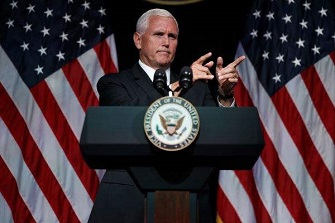
Zhao Minghao: Pence Speech Sent Confusing Signals
As China and the United States continued phase one of their consultations aiming for a trade deal, U.S. Vice President Mike Pence delivered a speech at the Wilson Center on China policy in which he said the U.S. is seeking “a fundamental restructuring of our relationship with China.” About a year ago, his speech on the same topic at the Hudson Institute was widely seen as a declaration of a new U.S. cold war with China.
2019-11-07 -

ASEAN envoys seek to finalize massive free trade pact deal
Whether a momentous free trade pact can be finalized has attracted considerable media attention at the 35th Association of Southeast Asian Nations (ASEAN) Summit, being held in Bangkok, Thailand starting on Sunday. Summit host Thailand expressed optimism for the Regional Comprehensive Economic Partnership (RCEP), as Thailand's Deputy Prime Minister and Commerce Minister Jurin Laksanawisit was quoted in The Bangkok Post as saying "participants of the RCEP hope to finalize talks on the 16-nation pact" on Friday.
2019-11-06 -

Guan Zhaoyu: Greece Connects China with Europe, Cultural Communication Under 17+1
17+1 is not just limited to economic trade but also refers to cultural communication. Since 2019 there have been 36 Confucius Institutes in CEE countries. This number has increased by 50 percent over five years. Especially in Hungary, where there are five Confucius Institutes now. From 2012 to 2019, the number of registered students in Confucius Institutes has increased from 15,000 to 52,000 thousand in CEE countries.
2019-11-06 -
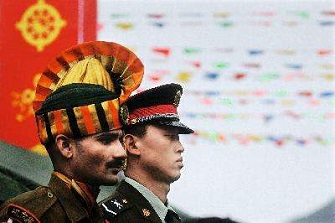
India’s decision on border likely to cause more frictions with China
hinese officials and experts on Thursday slammed India's unilateral move to change the China-India border status by formally establishing two new union territories in the Kashmir region, saying that the move challenges China's sovereignty and warning that India's decision risked border frictions despite bilateral ties developing on a progressive track. China voiced strong dissatisfaction and firm opposition to the Indian government's announcement on Thursday of implementation of the Jammu and Kashmir Reorganisation Act.
2019-11-06 -

He Weiwen: Facing the global headwind, China's economy offers hope
The second China International Import Expo (CIIE) opened on November 5, in the midst of a synchronized sharp slowdown in 90 percent of the world's economies. The second CIIE also offers a hope for the world with a vast, fast-growing Chinese market and a firm commitment to open the door ever wider, which explains the very high business attendance from the world over, with 330,000 square meters show area, 10 percent up from the first CIIE.
2019-11-06 -
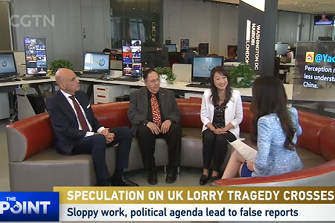
Busting headlines on the Essex lorry death
The Essex lorry death. On October 23rd, 39 people were found dead in a refrigerated truck in Grays in the United Kingdom, a small industrial town in Essex located around 20 miles to the east of London. The story has been covered intensely in the UK, while also making headlines around the world. While most people remain shocked and saddened by the tragedy, some UK media have used the event to speculate about the quote 'Chinese regime' and their reasons for fleeing, even before the identities of the victims have been confirmed.
2019-11-06 -
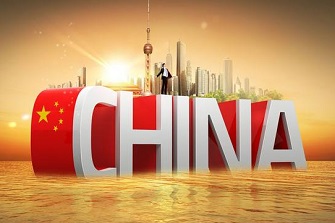
Wang Wen: Embracing and benefiting from China the best choice for the world
During my Cairo visit, I suggested to a few Egyptian diplomats that their country should allow visa-free entry for Chinese passport holders so they could visit and help promote Egypt's economic development. I was surprised to hear the reasons why this would be difficult. Apparently, there aren't enough hotels, only a few shopping malls, an underdeveloped payment system, and a shortage of Chinese tour guides. If there are too many Chinese traveling in Egypt, the country could not handle it, they explained.
2019-11-05 -
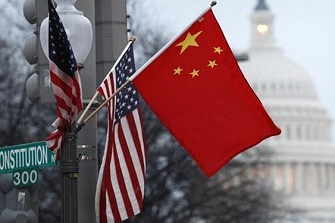
Where will the China-US trade agreement be signed?
The mid-November cancellation of the APEC summit in Chile, where China and the US were widely expected to sign an interim trade agreement, has ignited speculations about a new location and venue to ink the deal. The US farm state of Iowa and countries like Singapore and Peru have appeared as potential candidates among online speculations. US Commerce Secretary Wilbur Ross said that the deal between China and the US could be reached in one of several locations, including Iowa, Alaska, Hawaii and places in China, CNBC said on Sunday.
2019-11-05 -
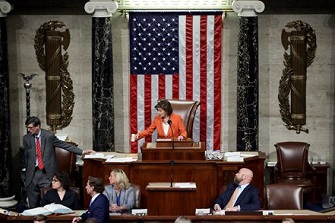
US impeachment of Trump fuels Chinese interest
The Chinese public has shown tremendous interest in the US Congress' impeachment inquiry into President Donald Trump as the proceedings took a remarkable turn on Thursday, with many viewing the dramatic episode as just pure entertainment, while others see it through the perspective of how it will impact trade negotiations between China and the US. However, for many, the impeachment process and underlying bitter, messy reality of the US political system offers a valuable lesson on the importance of political stability and national unity and a stark reminder that China must stick to its own system of socialism with Chinese characteristics.
2019-11-04 -
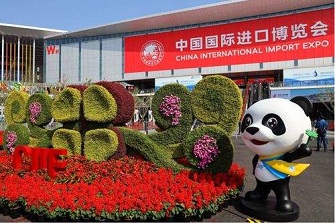
HK companies seek Chinese mainland market chances with help of CIIE
Hong Kong-based companies are putting more hope in the huge and stable mainland market, and take it as their new business focus, as violence has continued to sweep across Hong Kong and even showed signs of aggravation. The trend is reflected by Hong Kong businesses' more proactive participation in the 2nd China International Import Expo (CIIE). More than 200 Hong Kong-based enterprises have applied for presence at this year's CIIE, up 40 percent compared with last year. They will occupy a total exhibition area of 22,000 square meters, up 60 percent year-on-year, Sun Chenghai, deputy head of the CIIE bureau, told the Global Times on Saturday.
2019-11-04 -

Alzheimer’s drug wins quick approval
China has given speedy approval to a new domestic formula to cure for Alzheimer's disease (AD), the first such drug approved globally in 17 years, thanks in part to the country's continuous efforts and improvement in drug innovation. The approval also shows the nation's leading science and research ability in the sector. The National Medical Products Administration (NMPA) approved GV-971 to treat mild to moderate AD and improve cognitive condition on Saturday, Shanghai Green Valley Pharmaceuticals Co said in a statement on its website.
2019-11-04 -
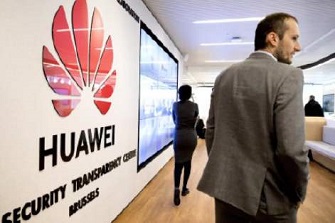
John Ross: Huawei access to 5G in UK involves a struggle as Washington continues interference
Over the weekend, the UK's Sunday Times leaked information about a fight taking place within the British government over whether or not to allow Huawei to participate in Britain's development of its 5G network. It is directly in the UK's economic interest that Huawei participates in developing the country's 5G network. But this involves a struggle in the coming weeks as it is clear that the US' Trump administration is continuing to intervene in the internal affairs of not only China, but of the UK.
2019-11-01
























































































 京公网安备 11010802037854号
京公网安备 11010802037854号





